Everything You Need to Know About Water Heater Replacement Cost in Las Vegas
When it comes to replacing your water heater, it is essential to have a clear understanding of the costs involved. Whether you are opting for an electric water heater or a gas water heater, being knowledgeable about the potential expenses associated with upgrading this crucial appliance is key. By conducting thorough research and gathering relevant information about the cost factors, you can make a well-informed decision that fits your budget while guaranteeing a dependable hot water system for your home.

When do you need to replace a water heater?
Knowing when to replace your water heater is crucial for ensuring a steady flow of hot water in your household. Several important factors should be taken into account:
Age: Water heaters have an average lifespan of 8-12 years. If your current unit exceeds this range, it is likely time to consider a replacement.
Corrosion: If you observe rust or corrosion on your water heater tank, it is a clear indication that a replacement is necessary.
Leaks: While certain leaks can be fixed, others may indicate a need for a complete unit replacement.
Insufficient hot water: If you notice a decline in the amount of hot water available or find yourself running out of hot water more quickly than usual, it could be a sign that your water heater is due for replacement.
To maintain a steady flow of hot water in your household, it is crucial to adopt a proactive approach instead of relying on an aging water heater that might eventually break down. By engaging in routine maintenance tasks like flushing the tank to eliminate sediment, examining for leaks, and inspecting the heating elements, you can significantly extend the lifespan of your water heater. Furthermore, it is essential to stay vigilant for warning signs that indicate the necessity for a replacement, such as the unit's age, corrosion, leaks, and inadequate hot water supply. By promptly addressing these concerns, you can prevent them from escalating into significant issues.

What affects the cost of replacing a water heater?
The cost of replacing a water heater can be influenced by various factors, ultimately affecting the overall price. When budgeting for a water heater replacement, it's crucial to consider these factors. For accurate estimates and guidance tailored to your specific situation, it is advisable to consult with a professional.
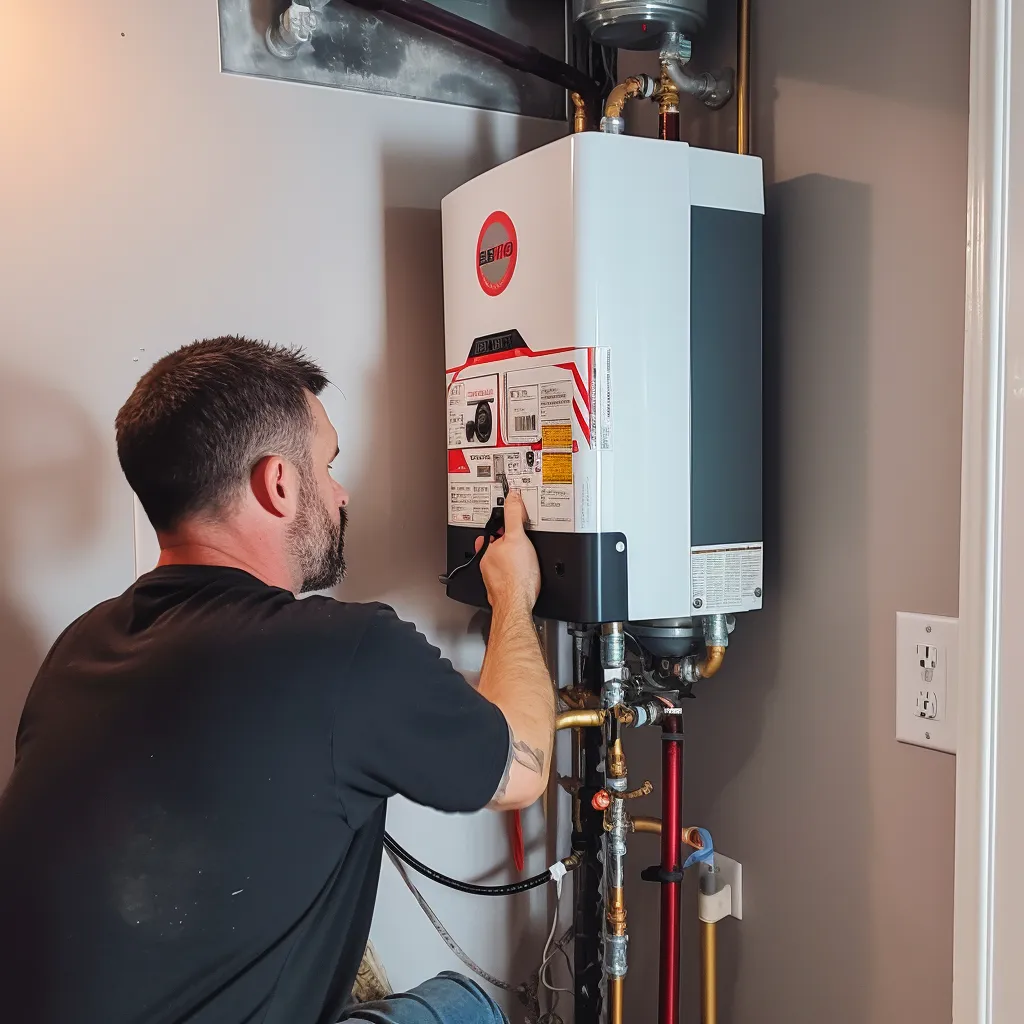
One important factor is the type of water heater you choose. Different types, such as tankless or traditional tank models, can vary in cost based on their size and energy efficiency ratings.
The size of the unit itself plays a role in determining the price. Generally, larger water heaters tend to have a higher price due to their increased capacity.
The inclusion of extras can contribute to the overall cost of replacement. Features like automatic shutoff valves or pressure relief valves may come at an additional expense.
Installation costs are another factor that can fluctuate. The complexity of the project, the requirement of additional materials, and the need for new pipes or venting systems can all affect the cost of installation.
Labor costs should be taken into account. Professional plumbers typically charge either an hourly rate or a flat fee for their services, which can impact the overall cost of the water heater replacement.

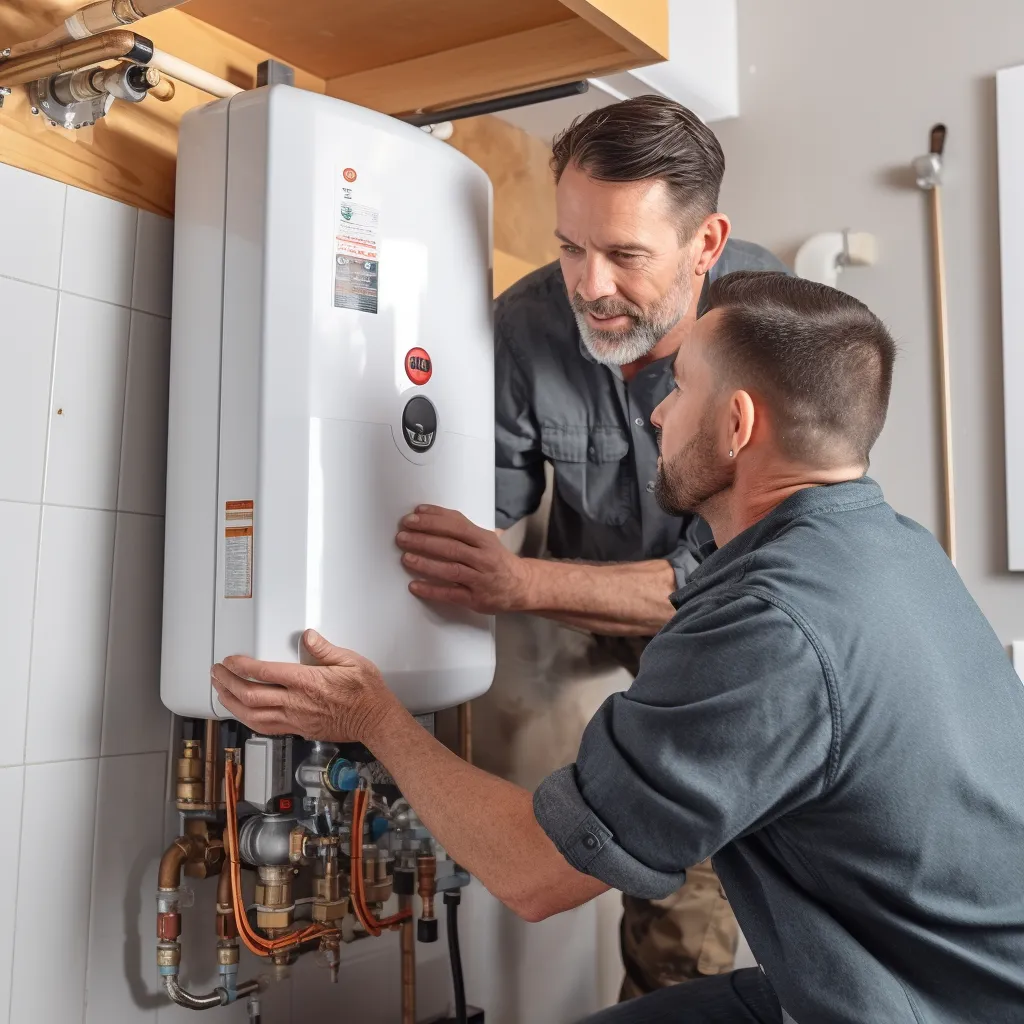
Replacing with energy-efficiency in mind
Investing in an energy-efficient water heater has big benefits:
Energy-efficient models have a positive impact on your finances. They consume less energy, resulting in lower monthly utility bills and long-term cost savings. By emphasizing energy efficiency in your water heater choice, you can attract budget-conscious consumers looking to reduce their expenses.
Energy-efficient water heaters provide enhanced comfort. They ensure a consistent and comfortable flow of hot water, guaranteeing a reliable supply and optimal temperature for your specific needs. This aspect appeals to individuals who prioritize convenience and reliable performance.
Energy-efficient models are designed to be durable and reliable for long-term use. They are often constructed with high-quality materials and incorporate advanced technology, increasing their lifespan and minimizing maintenance requirements. By highlighting the durability of your water heaters, you can attract customers looking for a long-lasting and dependable solution.
Energy-efficient water heaters contribute to a greener and more sustainable environment. By reducing energy consumption, they help lower greenhouse gas emissions, making them an eco-conscious choice. This resonates with environmentally conscious consumers seeking to minimize their carbon footprint and support sustainable practices.
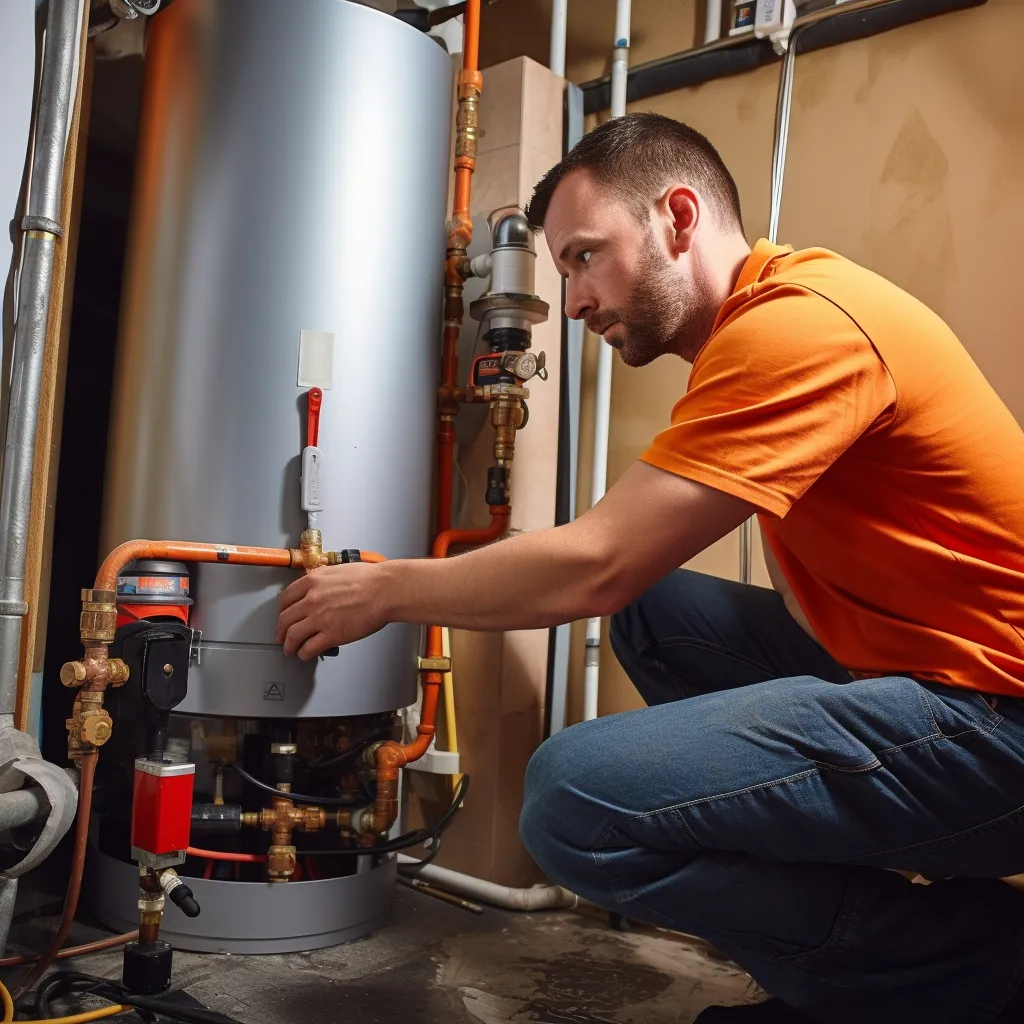
How to calculate the size
of the water heater you need for your home
When determining the right size for your hot water heater, it's important to seek advice from a professional who can assess your specific requirements and offer personalized recommendations. Several factors influence the size you'll need:
Household Size: The number of people in your household directly affects the amount of hot water required. Larger households typically necessitate a water heater with a larger capacity to meet the demand adequately.
Hot Water Usage Patterns: Take into account your hot water consumption habits. If you have multiple bathrooms or use hot water for tasks such as laundry and dishwashing, you might need a larger tank to ensure a sufficient supply of hot water.
Climate: Living in a colder climate means the incoming water temperature is lower. To compensate for this, you may want to consider a larger tank that can provide enough hot water to meet your needs.
Installation Space: It's crucial to consider the physical space available for installing the water heater. Make sure the selected size can fit comfortably within the designated area.

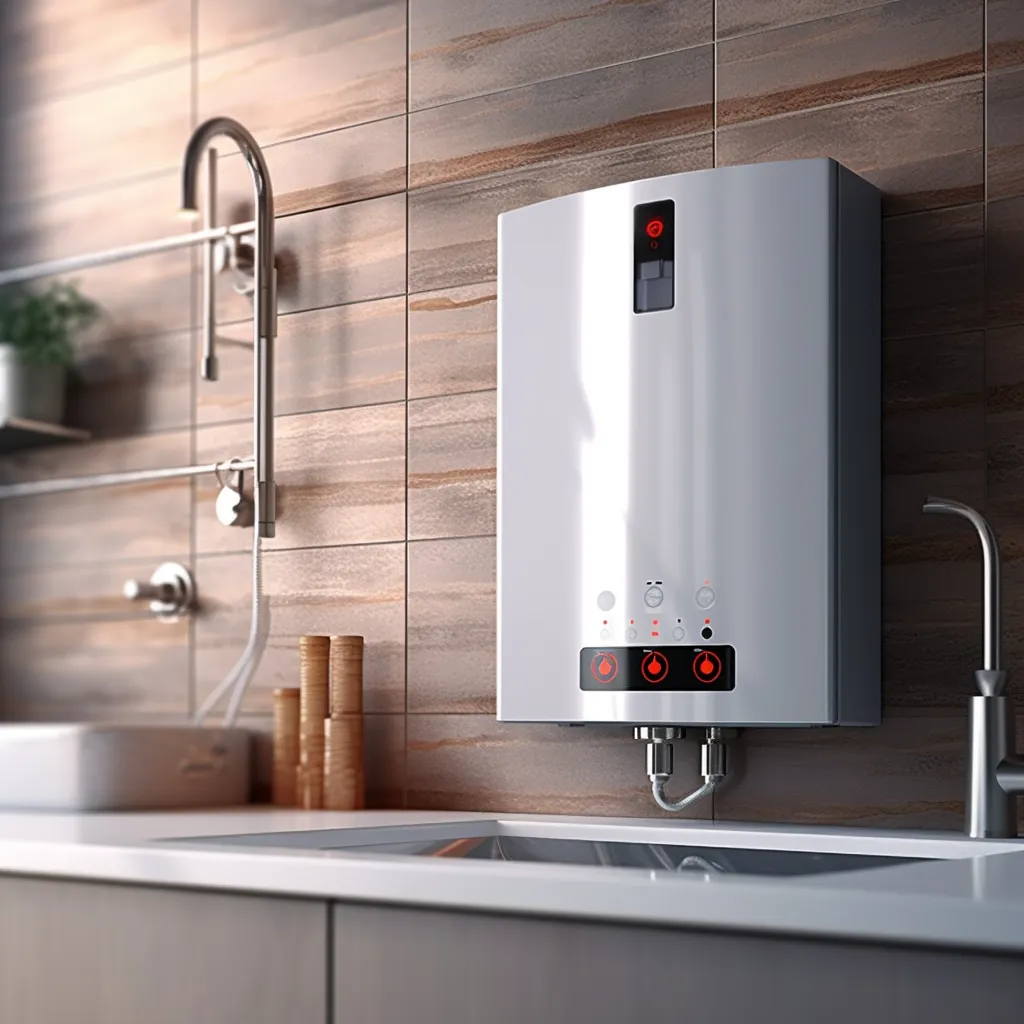
Research the different types of water heaters
When it comes to choosing a water heater for your Las Vegas residence, you have several options to consider. One of the traditional choices is a tank water heater, which stores a substantial amount of hot water in a tank and keeps it heated until you require it. In contrast, tankless water heaters provide hot water instantly without the need for a storage tank by heating water on-demand. Hybrid water heaters combine features from both tank and tankless systems, delivering energy-efficient performance and a continuous supply of hot water. If you're looking to reduce your reliance on traditional energy sources, solar water heaters utilize the sun's energy to heat water. Lastly, heat pump water heaters extract heat from the surrounding air or ground, ensuring energy efficiency and cost-effectiveness. By carefully evaluating your household's specific requirements, energy efficiency goals, and budget, you can determine the ideal water heater type for your home.
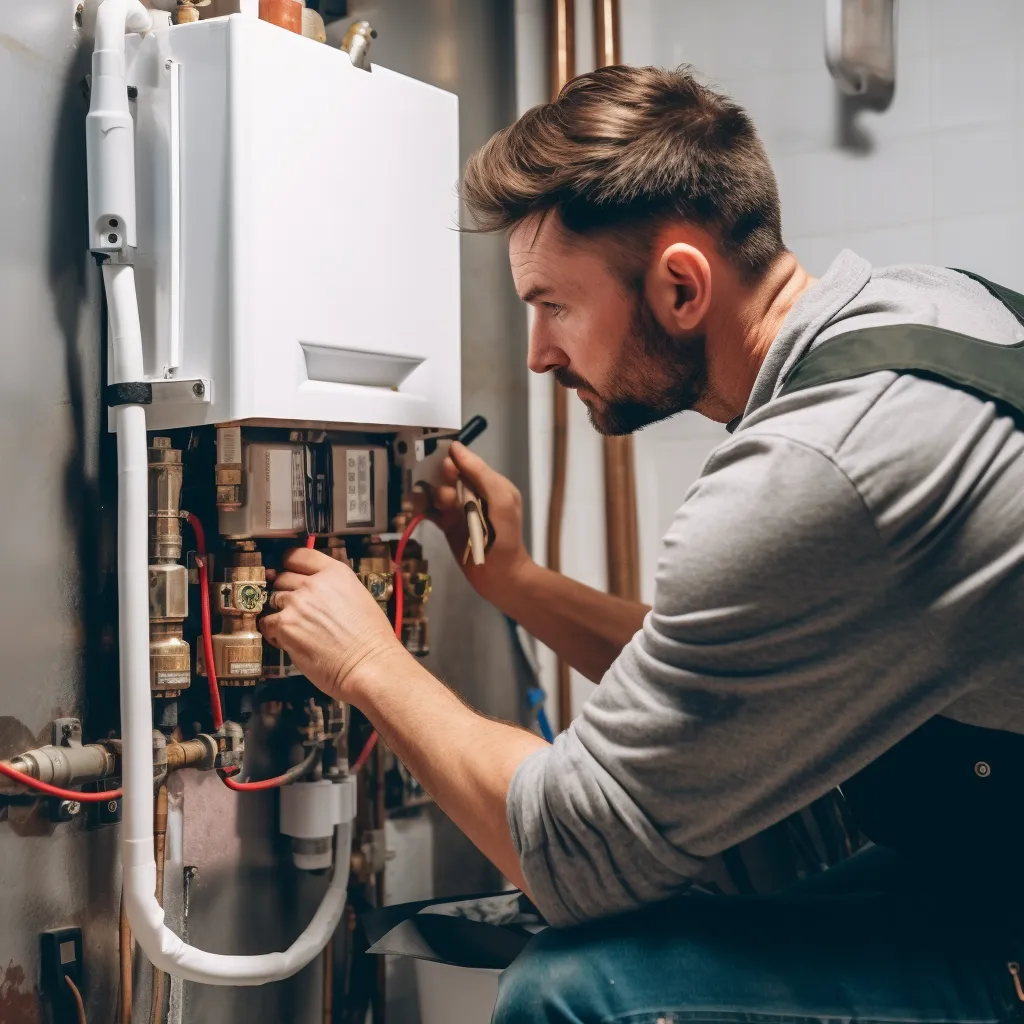
Cost of each type of water heater
Water heater replacement can be a costly endeavor, with the expenses varying depending on the type of unit you select.
Traditional tank heaters are initially more affordable but come with higher energy bills and a shorter lifespan.
On the other hand, tankless heaters boast a longer lifespan, lower energy bills, albeit higher upfront costs.
If you're looking for a middle ground, heat pump heaters offer moderate prices and the potential for substantial long-term savings. Alternatively, solar heaters are not only environmentally friendly but can also save you money in the long run, though they do come with a higher initial investment.
For those seeking innovation and convenience, smart heaters are worth considering, as they provide remote control capabilities and energy-saving features. While they may come with a higher price tag, their advanced functionalities can enhance your overall experience.
Another option to explore is condensing heaters, known for their high efficiency, although they tend to be more expensive.
When it comes to choosing between gas and electric models, it's important to weigh the pros and cons. Gas heaters have lower upfront costs, making them an attractive choice for budget-conscious individuals. However, electric heaters have the potential to be more energy-efficient, which could result in long-term savings on utility bills.
For those concerned about affordability, direct vent water heaters are the most budget-friendly option. Alternatively, if you're willing to spend a bit more, power vent models offer slightly higher quality and performance.
Cost of installation and ongoing maintenance
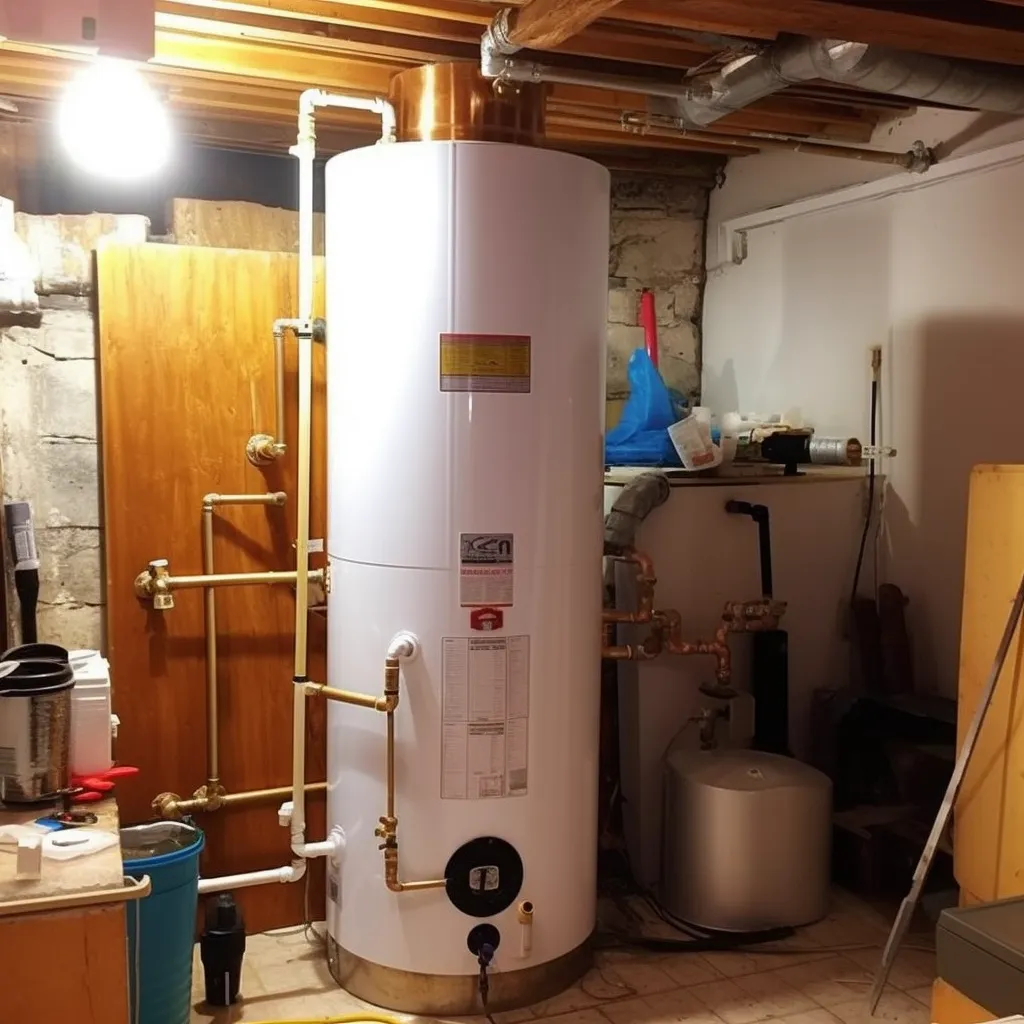
When it comes to choosing a water heater, it's crucial to keep in mind the installation and maintenance expenses. Here's a breakdown of the key points you should bear in mind:
For tank water heaters, the installation costs are generally lower. However, over time, they can prove to be more expensive to maintain.
On the other hand, tankless water heaters may have higher installation costs, but they tend to be more economical in the long run, thanks to their lower maintenance requirements.
Heat pump water heaters fall somewhere in the middle in terms of installation costs. They are similar to tankless heaters in this regard, but they might entail slightly higher maintenance expenses.
Solar water heaters, although eco-friendly and efficient, usually have higher installation costs. This is primarily due to their connection to the home's plumbing system.
Take into account the fuel costs associated with each type of water heater.
Gas heaters are often more cost-effective compared to electric models because of their lower energy expenses. It's worth noting, however, that fuel availability may vary depending on your location.
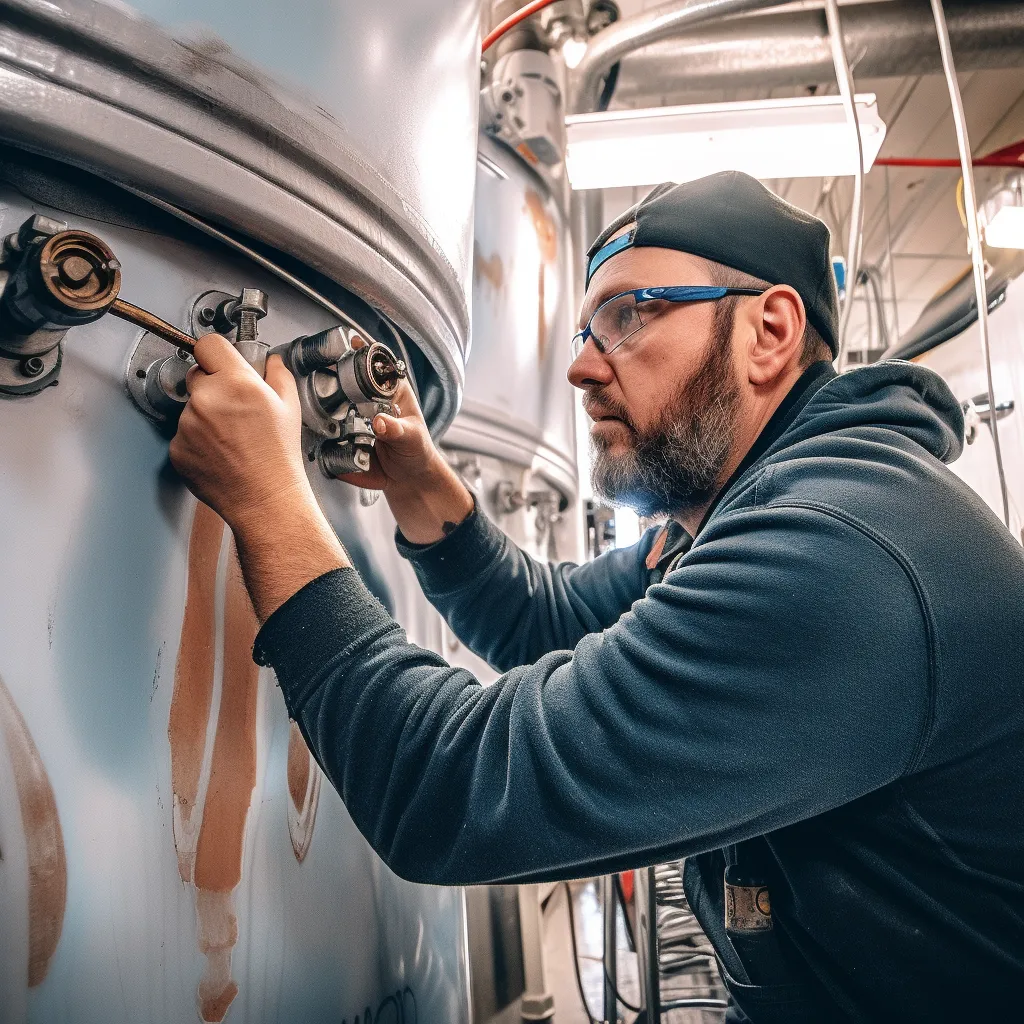
How to get an accurate estimate
for the cost of a water heater
It can be difficult to get an accurate estimate for the total cost of replacing your water heater, including installation, without doing some research.
Consider your household size and hot water usage patterns when determining the appropriate size and type of water heater for your needs.
Obtain quotes from local plumbing companies to assess the installation and upgrade costs for your water heater system.
Consider the cost of the water heater itself, including any warranties or additional features that may be required.
Tips to save money on installing a new water heater
Here are some valuable tips to help you save money when buying a new water heater:
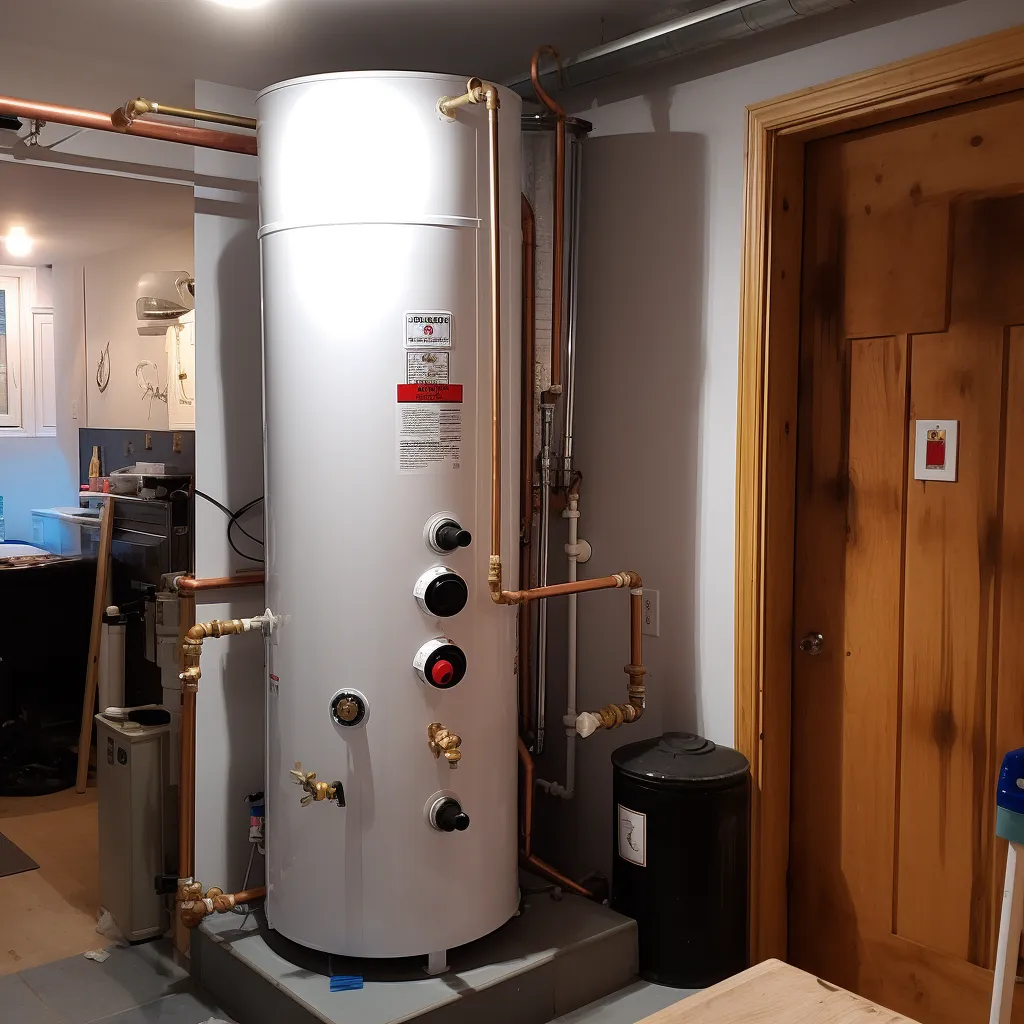
Compare prices from various retailers and plumbing companies to ensure you get the best possible deal.
Check with your local utility company to see if they offer any rebates or tax credits for purchasing an energy-efficient water heater. This can help you save even more money.
Investing in an energy-efficient model is a wise decision as it can significantly reduce your monthly utility bills over time. Look for models with high energy-efficiency ratings to maximize your savings.
Don't just focus on the upfront cost of the water heater. Consider the total cost of ownership, which includes maintenance, repairs, and energy consumption. A slightly more expensive but durable and efficient model may save you money in the long run.
Keep an eye out for bundle deals or promotions offered by manufacturers or retailers. Sometimes, you can find attractive packages that include installation or additional accessories at a discounted price.
If you're considering a used water heater, exercise caution. Thoroughly inspect the unit before making a purchase to ensure it's in good condition and will meet your needs. Remember that a faulty or inefficient used water heater can end up costing you more in the long term.
Remember that water heater installation requires specialized tools and knowledge. It's highly recommended to hire a professional for the job to ensure proper installation and avoid potential issues. The expertise of a qualified plumber will not only save you time but also provide peace of mind.
What to do if you need services
to replace your water heater
If your water heater is failing and you're considering a replacement, hiring a licensed water heater professional is the best approach. Here are some tips to help you choose the right expert for the job:
Request a detailed cost estimate that includes the price of the water heater unit, installation fees, and any additional charges.
Check for customer reviews and testimonials to gauge the professional's reputation and quality of work.
Seek recommendations from friends, family, or neighbors who have recently had their water heaters replaced.
Consider getting multiple quotes from different professionals to compare prices and services.
Ensure that the professional follows local building codes and regulations during the installation.
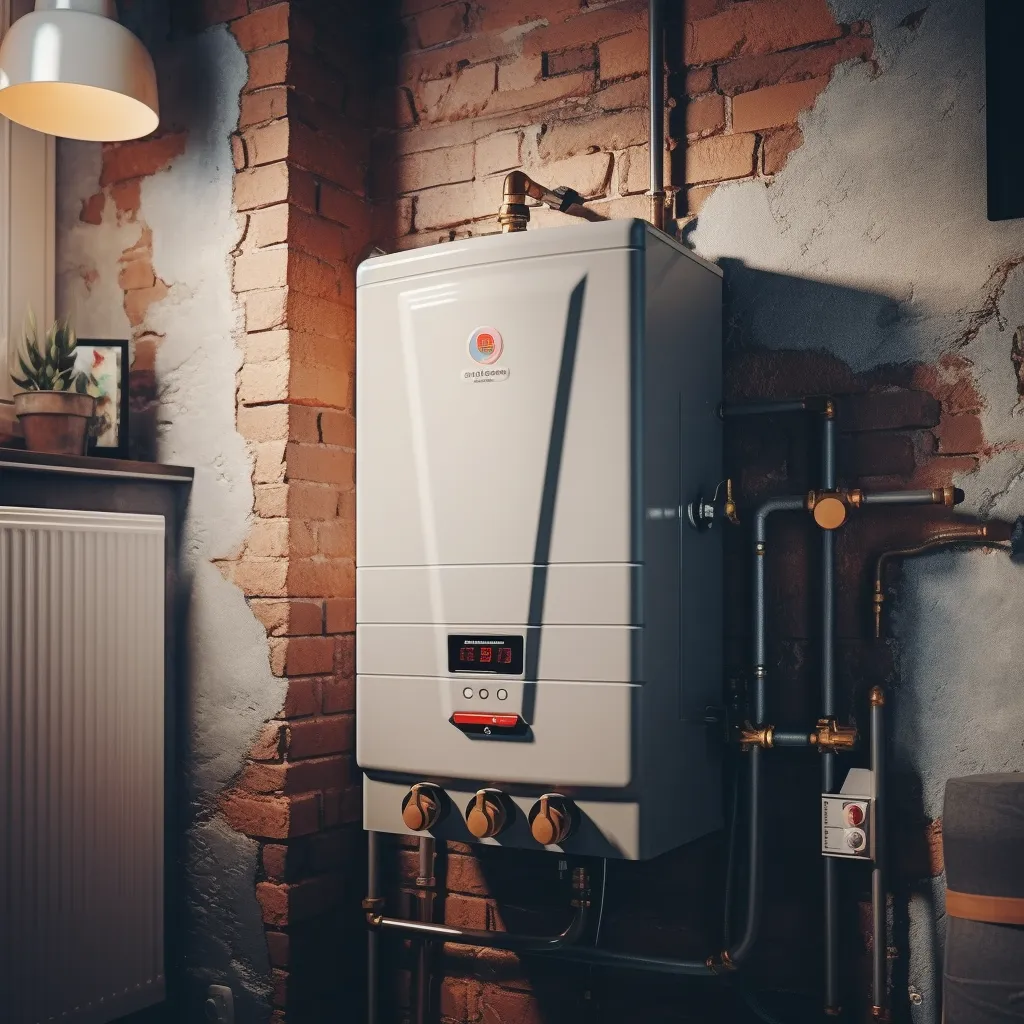
A reliable professional will be able to:
Looking for reliable water heater services? Look no further! At our company, we specialize in comprehensive solutions tailored to your needs.
Whether your water heater needs repair or replacement, our skilled professionals are here to help. We'll conduct a thorough assessment of your current system to determine the best course of action.
When it comes to pricing, transparency is our priority. Rest assured, our detailed estimates cover everything from labor and materials to applicable taxes, so you'll have a clear understanding of the costs involved.
Choosing the right water heater can be overwhelming, but with our assistance, it's a breeze. Our knowledgeable team will guide you in selecting the perfect unit based on factors like size, efficiency, and price, ensuring it meets your specific requirements.
Installation is where our experienced technicians truly shine. From removing your old water heater to setting up the new one, we handle the entire process with expertise and precision. Sit back and relax as we ensure a seamless transition.
To provide you with added peace of mind, we stand behind the quality of our workmanship and the parts we use. That's why we offer warranty coverage, so you can trust in the reliability and durability of our services.
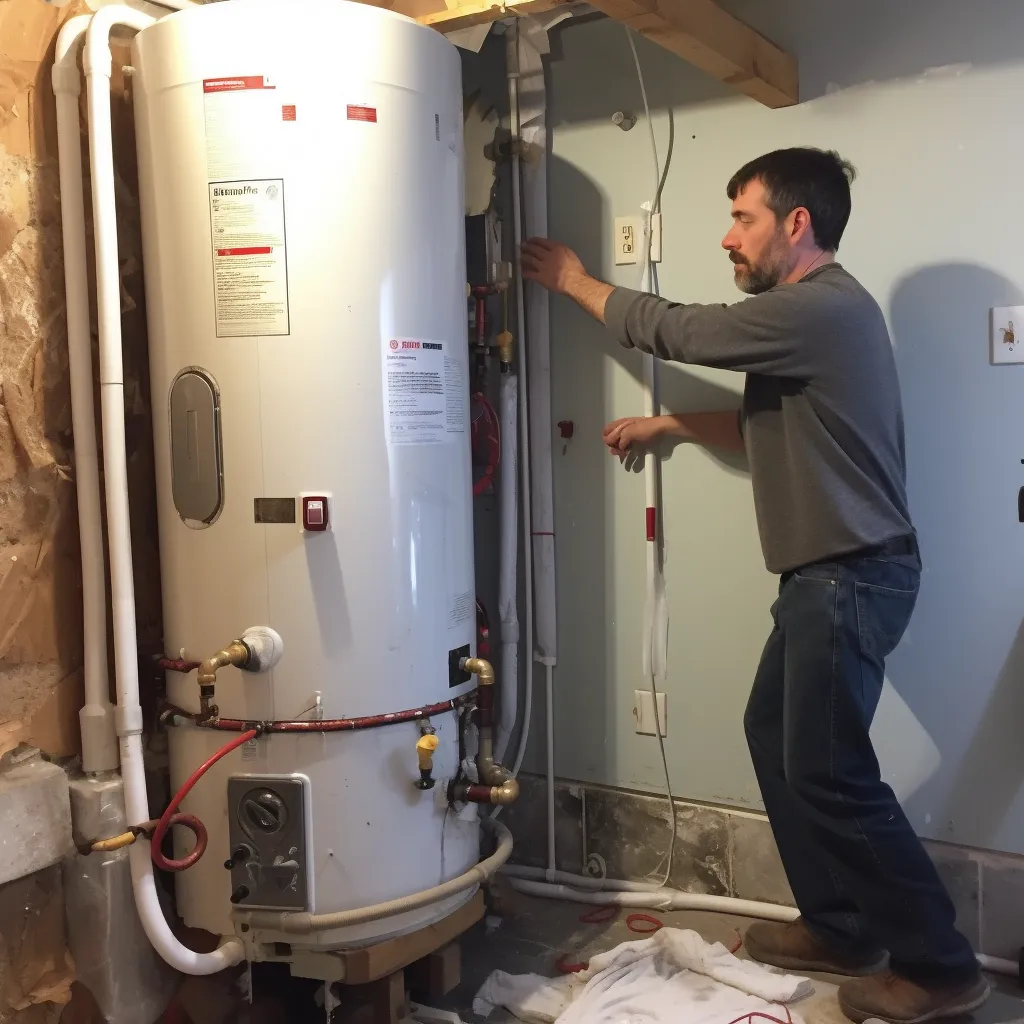

Water heaters don't last forever
Understanding the optimal time to replace or retain your water heater is crucial for homeowners. Generally, water heaters have a lifespan of 6 to 12 years, which varies based on how frequently they are used and their level of efficiency. When contemplating a replacement, there are several cost factors to consider, such as the water heater's type, size, installation expenses, and ongoing maintenance fees. Additionally, exploring potential savings through rebates, incentives, or extended warranties can play a significant role in the decision-making process. It is advisable to conduct thorough research and compare various water heater models before making a well-informed choice. Seeking guidance from a licensed professional can provide valuable assistance and potentially lead to long-term time and cost savings.
Contact Us
GET IN FULL TOUCH
PHONE:+(702) 935-6990
EMAIL:
stephen@waterheaterlasvegas.com
Las Vegas, NV 89183
